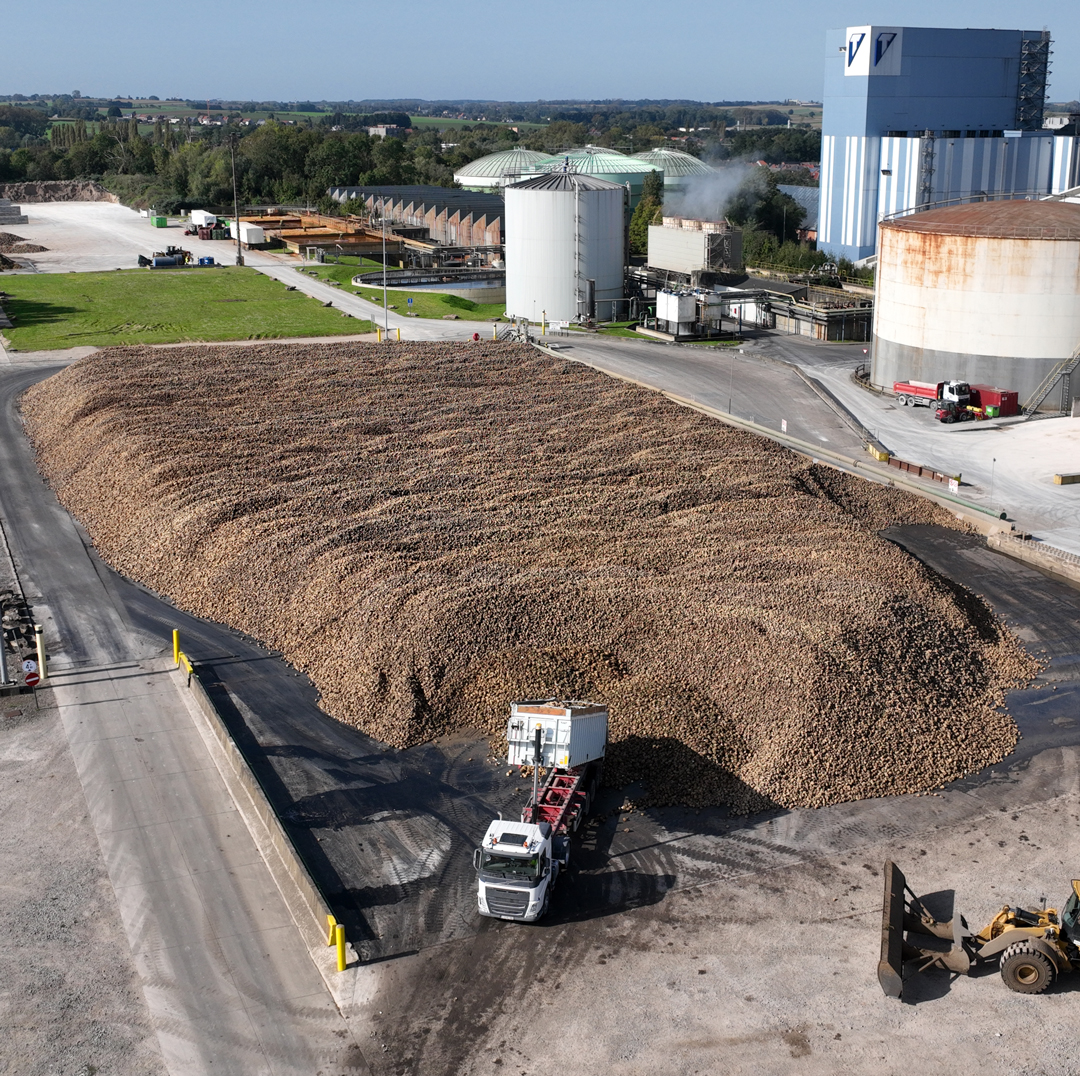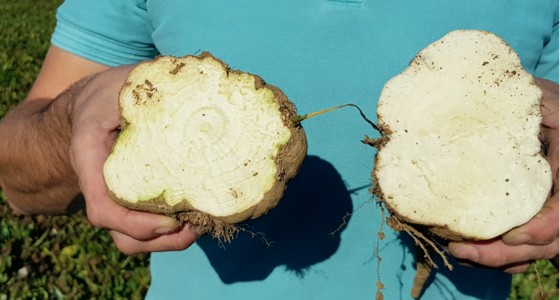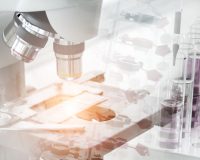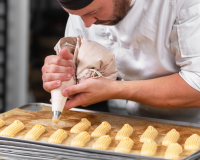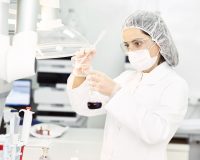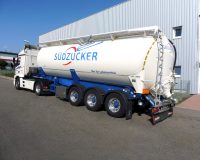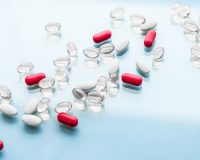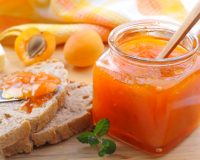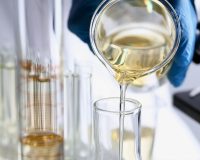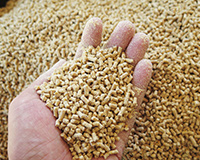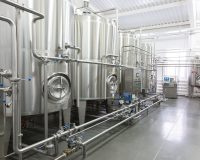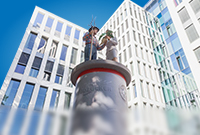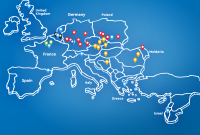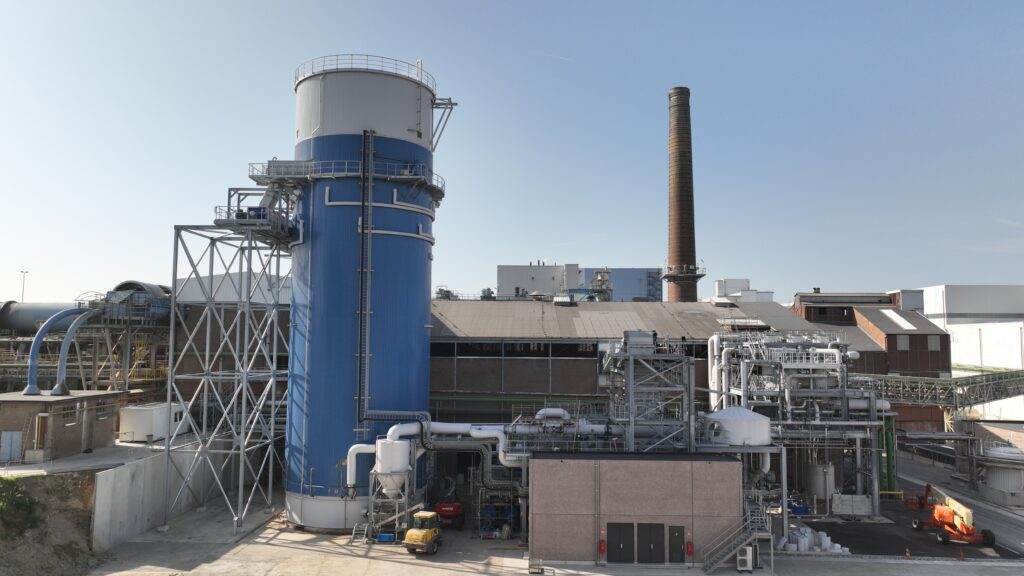
Enhanced Sustainability in Sugar Production Thanks to New Diffusion Tower
Earlier this week the official inauguration of the new diffusion tower at Tiense Suikerraffinaderij took place, with the presence of Flemish Minister of Economy, Innovation, Employment, Social Economy, and Agriculture, Jo Brouns.
Tiense Suikerraffinaderij, part of the Südzucker Sugar Division, is dedicated to achieving operational excellence and firmly champions unique, innovative technologies for water and energy conservation. The construction of this cutting-edge tower will result in an annual reduction of 6,000 tons of CO2 emissions and savings of 150,000 cubic meters of water. A project of 25 million euros, of which 1 million is supported by the Flemish Government and the Strategic Ecological Support (STRES). The modernization of the extraction tower is a vital component of a broader, long-term strategy aimed at achieving sustainable sugar production.
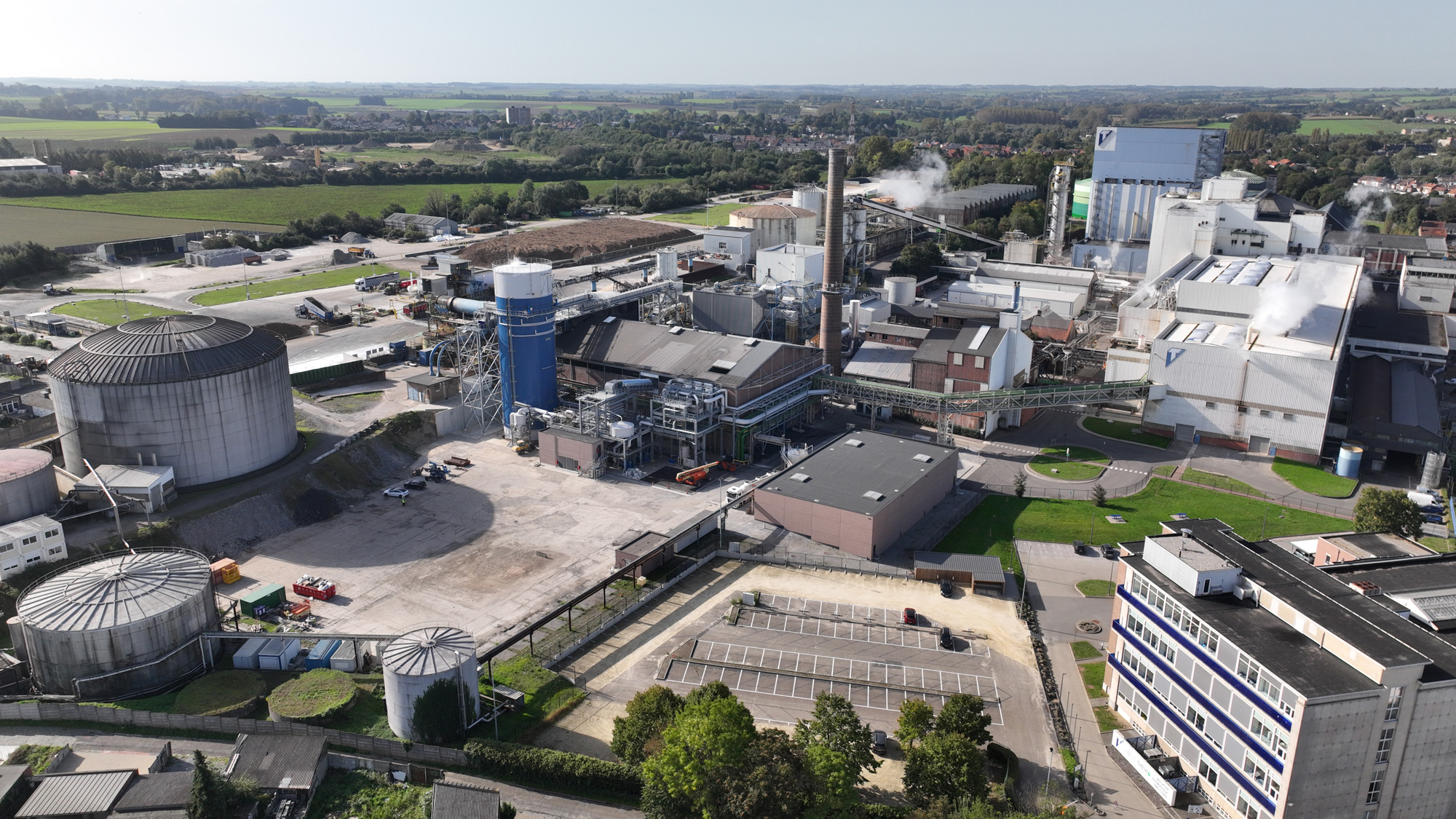
A diffusion or extraction tower is a large vessel filled with warm water used to extract sugar from sugar beets. Diffusion or extraction is a crucial stage in the sugar production process. The beets, sourced from fields located on average 50 km from the factory, are cleaned and cut into small strips.
These beet strips are pumped into the tower and submerged in hot water. The strips spend approximately 2 hours in the diffusion tower at a temperature of 72°C. During this process, the sugar is released from the beet strips and mixes into the water. This process yields two products: pulp and sugar juice. The sugar-free pulp is later used as animal feed, while the sugar juice undergoes further processing.
It goes through purification to remove impurities like minerals, then through evaporation to extract water, and finally to crystallization to obtain sugar.
The new diffusion tower, standing at an impressive 38 meters in height with a diameter of 12 meters, boasts the capability to process up to 14,500 tons of beets per day. This tower replaces the previous equipment, which included two horizontal diffusion drums that sparked a revolution in the sugar industry four decades ago, serving as a blueprint for numerous other factories. Thanks to meticulous planning and the unwavering dedication of our staff and partners, the construction of this tower was completed in just two years.
The tower’s distinctive design results in increased volume and a larger contact surface, leading to reduced energy consumption and minimized sugar losses. With this cutting-edge technology, Tiense Suikerraffinaderij is set to reduce its energy consumption by 25% compared to the old diffusion drums, thereby curbing CO2 emissions by approximately 6,000 tons annually.
In addition to energy savings, this innovation brings substantial benefits in terms of water conservation. A diffusion tower demands less energy and steam for juice purification and evaporation compared to diffusion drums. Decreased steam usage translates to reduced groundwater consumption. Furthermore, the juice extracted from the beets is efficiently recycled within the process, creating a closed-loop system within the diffusion process. This results in maximal water recovery and a significant yearly reduction of 150,000 cubic meters in water usage.
Jan Ingels, Director of the factories, firmly believes that sustainable innovation is the key to success. “It is crucial to focus on innovation and stay at the forefront of our times, even in age-old production processes like sugar. This is the only way we can withstand fierce competition and secure our operations.” Tiense Suikerraffinaderij employs around 600 direct and 6,000 indirect workers.
The construction of the new tower represented a €25 million investment, with €1 million coming from “Strategic Ecological Support” (STRES) provided by the Flemish Agency for Innovation and Entrepreneurship (VLAIO). The strategic ecological support is part of the Flemish government’s initiative to encourage both small and large businesses to invest in technologies that, due to their unique, company-specific nature, cannot be standardized. This aligns with the prevailing trend in Flanders to promote sustainability in our industrial activities and foster regional anchoring.
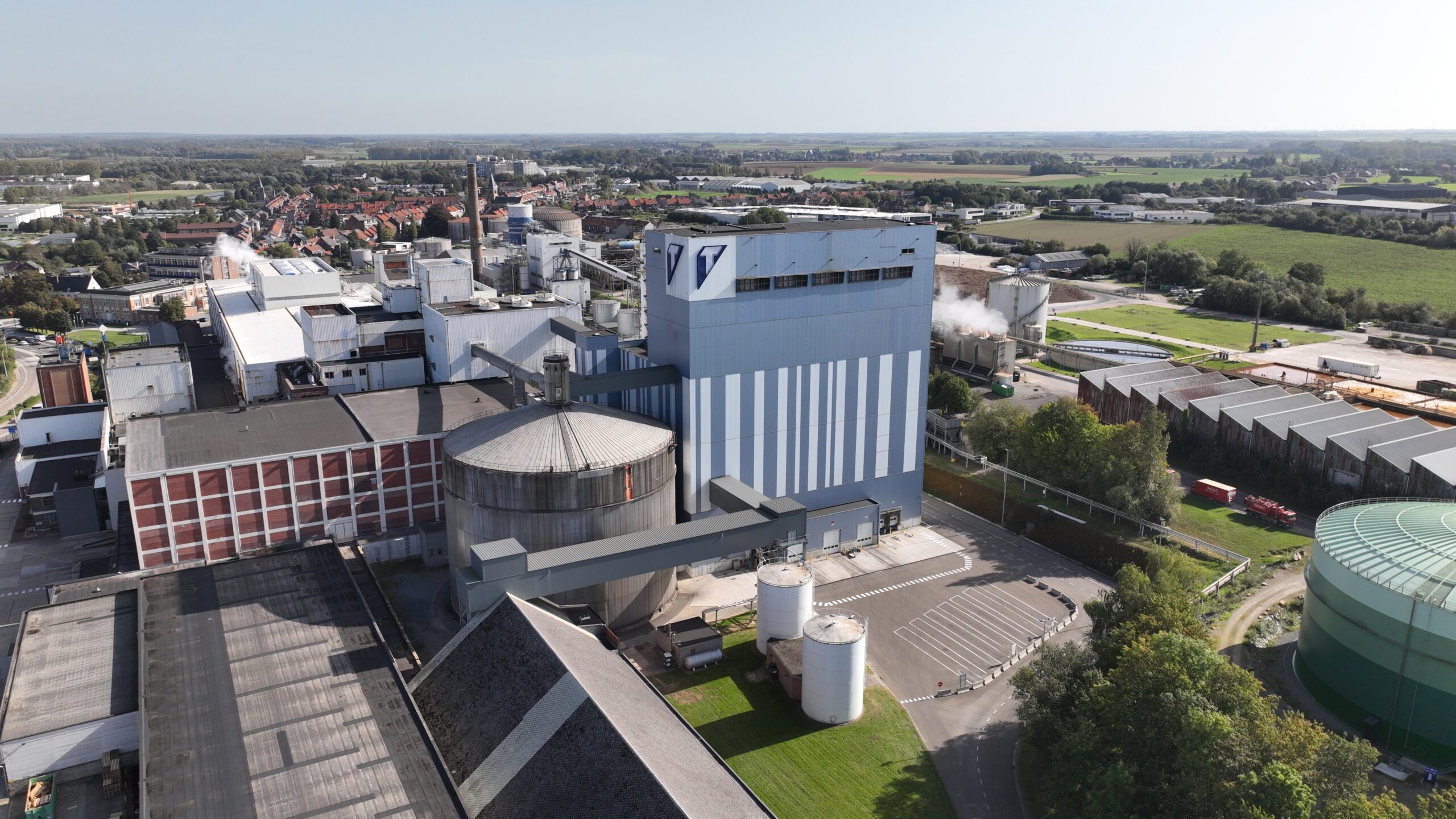
Flemish Minister Jo Brouns: “Tiense Suikerraffinaderij is decisively committed to innovation and sustainability with the investment in a new diffusion tower. This will not only result in reduced CO2 emissions but also save 150,000 m³ of water, benefiting our environment and climate.”
“These kinds of investments,” the Minister adds, “are also important to remain competitive, thereby helping to secure the future of the factory in Tienen and safeguard employment in the region. This is of immense importance for the farmers in this area as well. With the support of the Flemish government, we are backing this project with 1 million euros in strategic ecological support.”
Sustainability is ingrained in the DNA of Tiense Suiker and the Südzucker Group. In February 2022, the Südzucker Group joined the Science Based Targets Initiative (SBTi), committing to significantly reduce their own greenhouse gas emissions. By 2030, the group aims to achieve a 50.4% reduction in greenhouse gas emissions in their own operations and energy procurement.
The ultimate goal is to become climate-neutral by 2050, with a focus on efficiency measures, such as the carbon farming project for carbon sequestration in sugar beet and chicory cultivation. As a pioneering initiative, Tiense Suikerraffinaderij will launch a high-temperature heat pump with a thermal capacity of 5MW in 2024 under a European Horizon project, while further electrification is in the works. In terms of circular water usage, Tiense Suikerraffinaderij is at the forefront of the “Tiense Watervelden” project, aimed at annually producing over 1 billion liters of drinkable water from locally grown sugar beets through source diversification.

